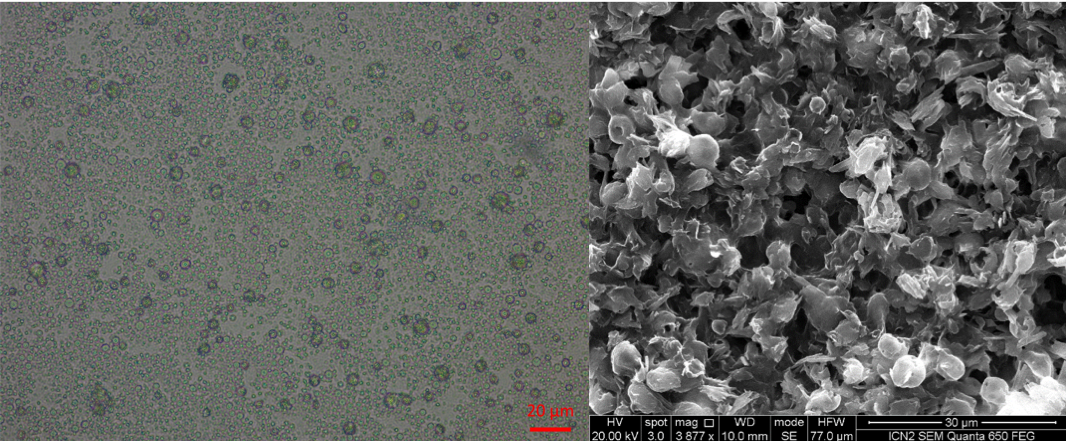Friday, 12 June 2020
Microencapsulated mosquito repellents to prevent tropical diseases spread
The MINECO and FEDER funded MICROREP project, participated by the ICN2 Nanostructured Functional Materials Group, concluded recently with the production of smart microcapsules containing repellent substances and fragrances for application on textiles.



The MICROREP project, funded by the Spanish Ministry of Economy, Industry and Competitiveness and by the European Regional Development Fund (ERDF-FEDER), was focused on the development of smart microcapsules containing mosquito repellents and fragrances for application in textiles to prevent the spread of tropical diseases (such as dengue fever, malaria and zika). The project, coordinated by the firm CARINSA (Sant Quirze del Vallès, Barcelona) and carried out in collaboration with the Technology Centre of Catalonia (EURECAT), lasted three years, starting in 2016, and it has just concluded with successful results. The Nanostructured Functional Materials group (NANOSFUN) of ICN2, led by Dr Daniel Ruiz Molina, had a key role on the capsules design and development.
The mosquito repellent formulation, based mainly on essential oils, was developed by R&D CARINSA’s fragrance division providing effective protection against common mosquito, Culex pipiens, as well as pleasant olfactory perception. The microcapsules were engineered by Dr Claudio Roscini, Beatriz García Martinez (NANOSFUN, ICN2) and Pablo González-Monje (Carinsa). The microcapsules were also used to functionalise different textile materials, a work led by Dr. Claudia Delgado and Alejandra Ben-Aissa, from the Functional Printing & Embedded Devices Unit at Fundació EURECAT.
The purpose of the microcapsules is to contain the repellent substance and the fragrance, which otherwise would evaporate quickly. They are released when a certain temperature is reached, thanks to the inclusion in the capsules of phase-change-materials (PCM). This component experiences a change of phase under specific external conditions – in this case, the increase of temperature, up to a value compatible with mosquitos proliferation. The fragrance is effective in covering the smell of the repellent substance. The microcapsules are made of biodegradable and biocompatible polymers and are meant to be applied on different types of products, from cotton textiles for clothes to material for camping tents.
This project, which met the planned milestones with the production of the microcapsules, their deposition on real cloths and the proof of their effectiveness, is a follow-up of a previous project, funded by the Spanish Government, which the NANOSFUN group carried out in collaboration with the perfumery division of the CARINSA group and of a joint doctoral thesis (industrial PhD) on the design and fabrication of new fragrance microcapsules for fabric softener formulations.
MICROREP is a project financed by the Ministry of Economy, Industry and Competitiveness and by the European Union, as part of the Challenges-Collaboration tender (“Retos”) under the State Investigation, Development and Innovation Programme for Challenges in Society (RTC-2016-5670-1). This forms part of the 2013-2016 State Science, Technical and Innovation Plan, the mission of which was to foster technological development and quality innovation.

